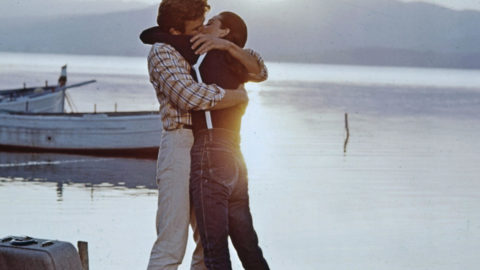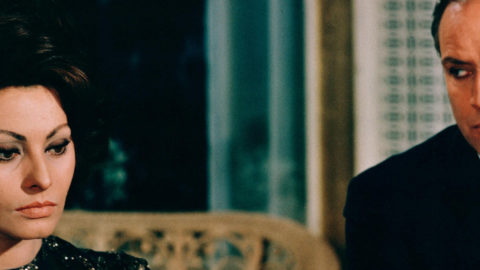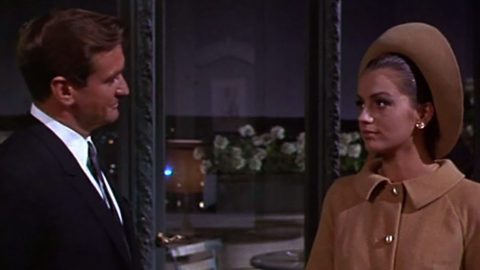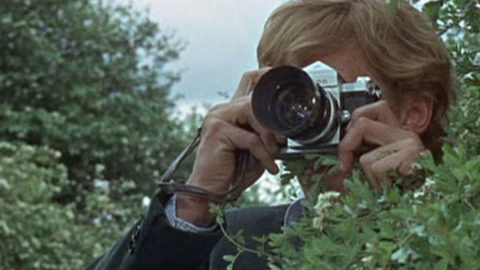Cinema ’67 Revisited: The Honey Pot
In my 2008 book Pictures at a Revolution, I approached the dramatic changes in movie culture in the 1960s through the development, production, and reception of each of the five nominees for 1967’s Best Picture Academy Award: Bonnie and Clyde, The Graduate, In the Heat of the Night, Guess Who’s Coming to Dinner, and Doctor Dolittle. In this biweekly column, I’m revisiting 1967 from a different angle. As the masterpieces, pathbreakers, and oddities of that landmark year reach their golden anniversaries, I’ll try to offer a sense of what it might have felt like to be an avid moviegoer 50 years ago, discovering these films as they opened.

Many years ago, I was dating a guy who loved movies and we were in the stage of our relationship when we were beginning to unveil semi-obscure tastes and oddball favorites to each other. “Have you seen The Honey Pot?” he asked. I hadn’t even heard of The Honey Pot. “It’s fantastic,” he said. “Joseph Mankiewicz wrote and directed it, Rex Harrison and Maggie Smith are in it, and it’s incredibly nasty and funny and elegant.”
In short order, I obtained a copy of the movie and popped it into the VCR. (Did I mention it was many years ago?) For the next two hours and 12 minutes, we watched together, in a silence so stony that it actually seemed to harden the air around us. The movie ended, finally. I looked at him. “Uh,” he said. “I probably should have mentioned that the last time I saw it, I was 10 years old.”
Reader, I married him anyway. And as an act of atonement, he even offered to write this week’s column. But a job’s a job, and The Honey Pot is, sad to say, a job. It’s not a “You had to be there” movie, or even a “You had to be there and you had to be 10” movie, but at moments, it is discernible as a movie that could conceivably tantalize a proto-gay 10-year-old in 1967 who delighted in things like the oversized ornate hourglass filled with gold dust instead of sand that Capucine gives Harrison, and who also delighted in things like the fact that there was an actress whose entire name was Capucine.

The hourglass was glittery and too much, in a good way. The movie was supposed to be too. It was Mankiewicz’s idea to adapt Ben Jonson’s early-17th-century satire Volpone (as well as a play and novel that were themselves adaptations) into a modern-day story in which Harrison was to play Mr. Fox, a rich man who enlists the assistance of a failed actor (Cliff Robertson—no comment) in a cha-rahde: he will pretend to be dying and summon to Venice three of his past loves—Susan Hayward, Edie Adams, and the aforementioned Capucine—to watch them vie for his affection and his money. What ensues is less a sumptuous meal than a lot of table-setting for what turns out to be a somewhat stakes-free murder mystery, unfolding in long conversational scenes (Mankiewicz’s forte) shot drably and without much visual invention (his Achilles’ heel). It’s never laugh-out-loud funny; it’s more smile-grimly amusing, and often not even that.
Mankiewicz and Harrison had worked together several times before, most recently on 1963’s Cleopatra, but when the director showed up at the star’s hotel room with what Harrison described in his autobiography as a “large suitcase” containing an unfinished and “very long” script called Mr. Fox of Venice, a lethal bit of anti-chemistry was sparked. At that moment, there could have been no surer setup for a clash of egos than Mankiewicz coming off a failure colliding with Harrison coming off a success. For the director, Cleopatra, despite its high grosses, had been an out-of-control disaster and an immense creative disappointment. In an interview with The New York Times on the set of The Honey Pot (which Harrison wrote had then, “to my horror,” been renamed Anyone for Venice?), Mankiewicz said of Cleopatra, “I don’t want to talk about it. I consider it an experience rather than a movie—humiliating and not gratifying.” But if he was scathed, Harrison was not; he was the only actor in Cleopatra to get an Oscar nomination, and the following year, he won the Best Actor Academy Award for My Fair Lady.
On the set, it was not always clear who outranked whom. When Harrison arrived in Italy for the shoot, according to Alexander Walker’s biography, he was livid to discover that Mankiewicz had scheduled all his most difficult scenes to be shot back-to-back, and he refused to show up to the studio until the shooting order was changed. Mankiewicz’s reply: “Tell Rex I’ve got an Oscar too.”
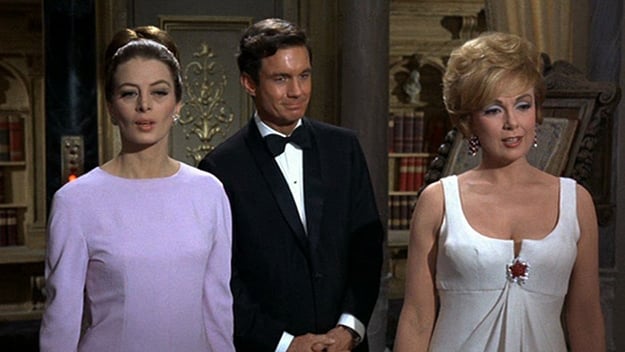
In fact, Mankiewicz had four. But the most recent of them, for writing and directing All About Eve (1950), had come long ago, and in the surviving cut of The Honey Pot—the version the trades reviewed was over two and a half hours—you can feel him trying to recapture that glory. In some ways, the film fits squarely into his oeuvre—in its fascination with theatricality, multiple identities, and strategic artifice, it connects to both All About Eve and the still-to-come Sleuth, and its appetite for embedding a mystery in the structure of its story links it to A Letter to Three Wives as well. (At one point, Mankiewicz cribs from All About Eve by having Harrison deny Smith a chocolate during a fight scene; at another, he returns to a favorite All About Eve target, having Harrison complain that television is “for the witless and the undemanding.”)
But The Honey Pot doesn’t make a case for wit; it’s like a version of All About Eve that focuses solely on Addison DeWitt, and instead of becoming wicked fun with acid dialogue, it just plays as sour and misanthropic. Mankiewicz, who had been in the business since the 1930s—he was a studio producer before turning to writing and directing—had no shortage of axes to grind. He had little patience for the British movies, like Richard Lester’s The Knack …and How to Get It, which were then exciting critics, and in 1964 he complained that “the only TV fans who know me are the ones who stay up to watch A Letter to Three Wives on the late shows. In this day in our society, the artist is becoming a feared minority.”
The Honey Pot shoot dragged on for five months. Mankiewicz replaced his cinematographer with Gianni di Venanzo, who had just shot Fellini’s Juliet of the Spirits, in an attempt to give the movie a less bright, more sophisticated look. And the director and Harrison reached an unhappy truce, joining forces only to keep a suicide attempt by the actor’s troubled wife Rachel Roberts out of the papers. But, as Harrison understatedly put it years later, the production was “not a happy experience,” and the movie Mankiewicz really wanted to make remained locked in his head.
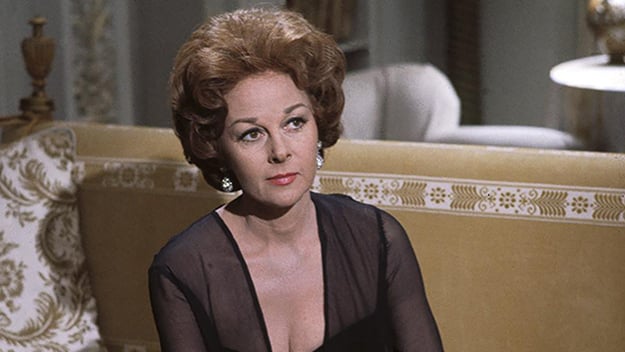
Or, possibly, in that large suitcase. The epic-length script for Mr. Fox of Venice contained a much more daring notion—a Brecht-meets-Pirandello conceit in which the actors would occasionally step away from the action to listen to their own dialogue, argue over its credibility, and respond to demands from the studio or the Production Code for changes. United Artists is said to have vetoed that idea, which deprives us, 50 years later, of what would surely have been, if nothing else, one of the greatest commentary tracks ever—not to mention a fully realized version of what would turn out to be the final script of Mankiewicz’s career.
How to see it: The Honey Pot is available on DVD and Blu-ray.
Mark Harris is the author of Pictures at a Revolution: Five Movies and the Birth of the New Hollywood (2008) and Five Came Back (2014).



